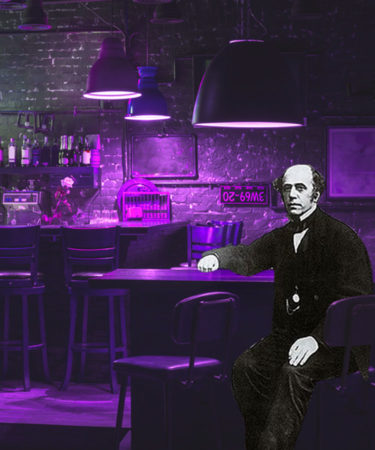In gin-soaked 19th-century Britain, the temperance movement emerged to counteract the myriad social problems stemming from alcohol abuse. Temperance advocates and activists felt an organized effort to limit consumption was the best solution.
Among them was Thomas Cook, a former Baptist preacher and cabinet maker. In 1841, when Cook was 32 years old, he was walking to a local temperance meeting when an idea struck him: Why not use the country’s rapidly expanding rail network to help spread the movement’s views on social reform?
And just like that, Cook inadvertently laid the foundations for modern-day tourism.
During that 1841 meeting, Cook suggested an organized train ride taking temperance supporters from Leicester to a meeting in Loughborough, roughly 12 miles away. The group’s response to the idea was enthusiastic, and Cook arranged the journey with a local railway company and set a date for the following month.
On July 5, around 570 passengers boarded the train’s open carriages, paying just one shilling for the 24-mile round trip. The journey was a success, with enthusiastic crowds lining the tracks and cheering as the locomotive passed by.
Cook arranged further trips over the following three summers on behalf of local temperance societies. Ticket fares covered only the journey’s costs, and Cook received no profit from the early excursions. They did, however, give him an idea for a future business.
In 1845, Cook arranged his first profit-making excursion. The train traveled between Leicester and Liverpool, with carriages split into first and second class, and priced accordingly (15 shillings for first class, 10 shillings for second). Cook also published a forerunner of the modern holiday brochure in the form of a carefully researched, 60-page handbook detailing the journey’s route.
Cook continued to expand his operation over the next two decades, and very soon his customers could choose between a number of international destinations, including mainland Europe, Egypt, and the United States.
In the 1860s, he and his son, John Mason Cook, opened the first travel agency office in London, offering both domestic and international travel options. For those traveling abroad, the agency produced circular notes that could be swapped for local currency, the world’s first traveler’s checks.
By the time he passed away in 1892, Cook’s agency had offices in many major European cities and published overseas editions of its newspaper, The Excursionist, in Europe, Australasia, America, and the Far East.
Though no longer family owned, Thomas Cook & Sons continues to operate, boasting “over 178 years of travel experience” on its website. “Don’t just book it, Thomas Cook it,” runs the agency’s tagline, proving that, while Cook’s original aim was to spread the message of temperance, it is travel and tourism with which he will forever be associated.
